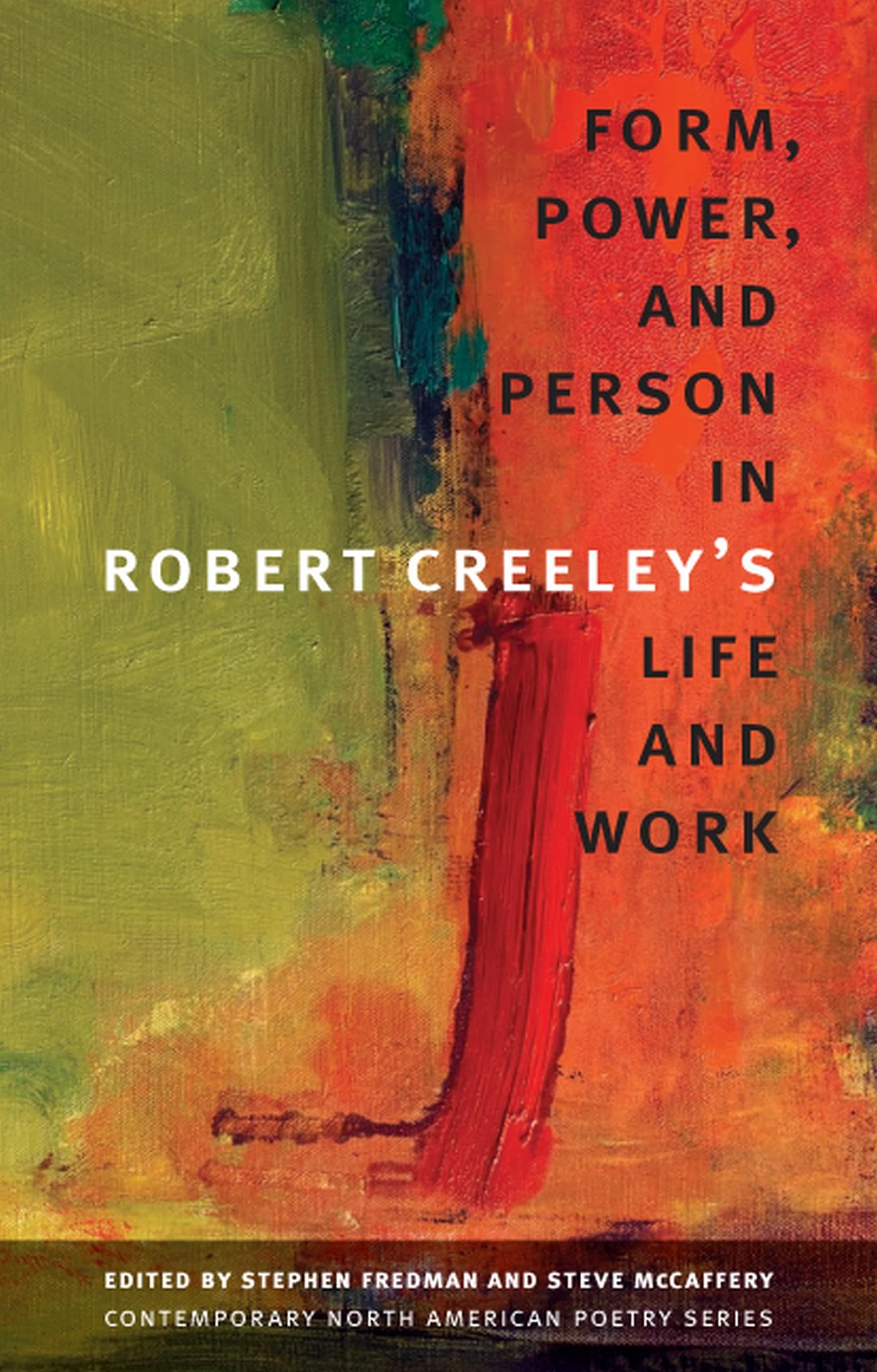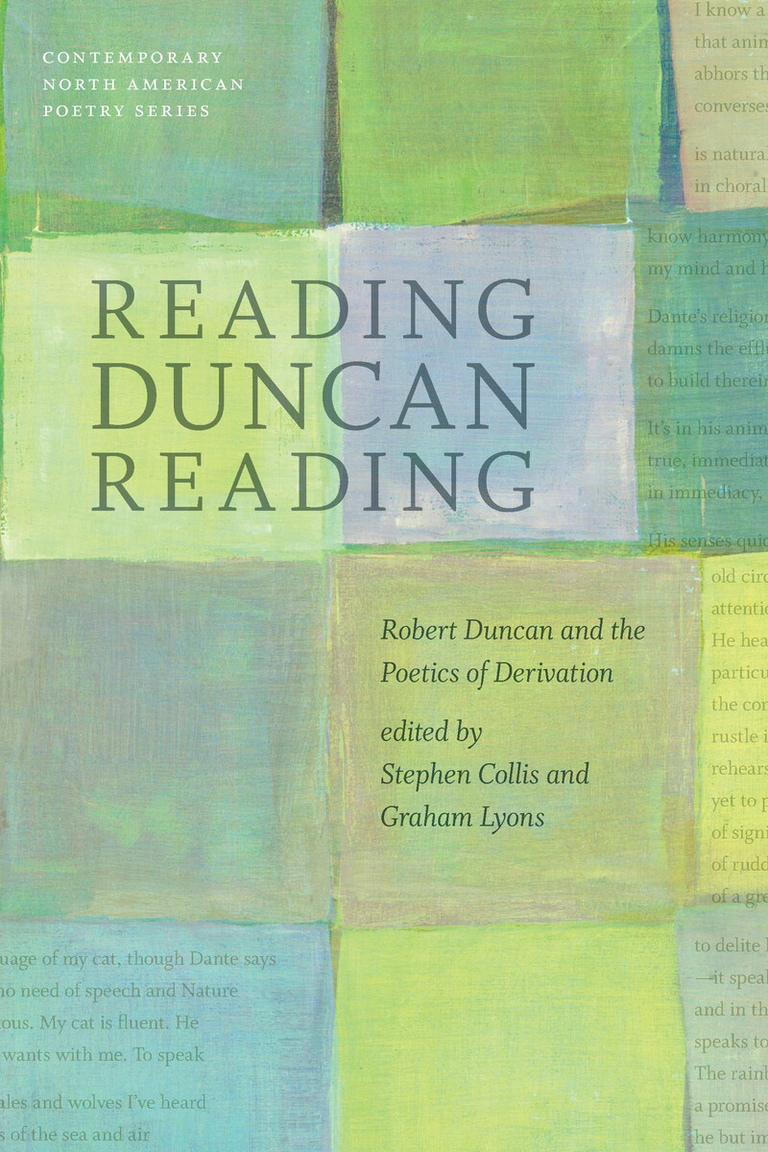By any measure—international reputation, influence upon fellow writers and later generations, number of books published, scholarly and critical attention—Robert Creeley (1926–2005) is a literary giant, an outstanding, irreplaceable poet. For many decades readers have remarked upon the almost harrowing emotional nakedness of Creeley’s writing. In the years since his death, it may be that the disappearance of the writer allows that nakedness to be observed more readily and without embarrassment.
Written by the foremost critics of his poetry, Form, Power, and Person in Robert Creeley’s Life and Work is the first book to treat Creeley’s career as a whole. Masterfully edited by Stephen Fredman and Steve McCaffery, the essays in this collection have been gathered into three parts. Those in “Form” consider a variety of characteristic formal qualities that differentiate Creeley from his contemporaries. In “Power,” writers reflect on the pressure exerted by emotions, gender issues, and politics in Creeley’s life and work. In “Person,” Creeley’s unique artistic and psychological project of constructing a person—reflected in his correspondence, teaching, interviews, collaborations, and meditations on the concept of experience—is excavated. While engaging these three major topics, the authors remain, as Creeley does, intent upon the ways such issues appear in language, for Creeley’s nakedness is most conspicuously displayed in his intimate relationship with words.
“Reading this volume, you can’t help but picture its first dramatic staging, a blizzard-bound Buffalo night when some of our smartest and most original contemporary poets and critics improvised a conference in a hotel room that, against all odds and general conditions, retained its light and heat. These essays, marked by their own heat and often by a dazzling, dilative light, delineate—‘e quel remir contral lum de la lampa’—the incomparable shapeliness of the work of Robert Creeley, a signal poet whose influence on yet another generation of young writers is clearly surgent. Form, Power, and Person in Robert Creeley’s Life and Work invigorates our thinking not only about Creeley’s significance, but also about what poetry is and does. For anyone who, like Creeley, can claim to be ‘frankly and selfishly interested in the word,’ this book is a site of memorable delight.”—Forrest Gander
“In this friendly and excellent volume, each essay makes a particularized, rather than a paradigmatic, reading of aspects of Robert Creeley’s work. Such particularity mirrors Creeley’s ‘occasion’ in the ‘common,’ and the essays move through many of the poet’s institutional, personal, and compositional contexts focusing on matters of lyric and seriality, gender and collaboration, the erotic and the epistolary, and more. Each essay analyzes astutely, and the volume is tremendously useful as a resource and guide for future Creeley studies.”—Lisa Samuels, author, The Invention of Culture and Tomorrowland
Charles Altieri
Rachel Blau DuPlessis
Stephen Fredman
Benjamin Friedlander
Alan Golding
Michael Davidson
Steve McCaffery
Peter Middleton
Marjorie Perloff
Peter Quartermain
Libbie Rifkin
Preface by Steve McCaffery ix
Acknowledgments xi
Abbreviations xiii
Introduction by Stephen Fredman 1
1 Form
1 Robert Creeley Out of School:
The Making of a Singular Poetics 19
Marjorie Perloff
2 What Does Echoes Echo? 36
Charles Altieri
3 Revisiting Seriality in Creeley’s Poetry 50
Alan Golding
4 The Repeated Insistence:
Creeley’s Rage 69
Michael Davidson
5 The Hole:
Death, Sexual Difference, and Gender
Contradictions in Creeley’s Poetry 89
Rachel Blau DuPlessis
6 Momently:
The Politics of the Poem 118
Peter Quartermain
7 Reconsidering the Company of Love:
Creeley between Olson and Levertov 143
Libbie Rifkin
8 Scenes of Instruction:
Creeley’s Reflexive Poetics 159
Peter Middleton
9 Creeley’s Contextual Practice:
Interviews, Conversations, and Collaborations 181
Stephen Fredman
10 What Is Experience? 203
Benjamin Friedlander
Bibliography 233
Contributors 243
Index 247


